Indoor plants get insect pest infestations quickly. And these indoor plant pests put our houseplants in danger. Therefore, it is always wise to get rid of them instantly with natural pest control for houseplants.
However, the one advantage is there are always many options to get rid of these pests. We can eliminate them either naturally or by synthetic chemicals.
The homemade bug sprays are best for indoor spaces. They will prevent indoor plants from bugs and not harm pets and humans. On the other hand, chemical pesticides relieve the plants quickly, but these toxic chemicals break the interior spaces.
So, it is wise and best to rely on natural pest control for houseplants to avoid the harms of toxic chemicals in an indoor environment.
This write-up will discuss the natural pest control for houseplants to prevent them from damage.
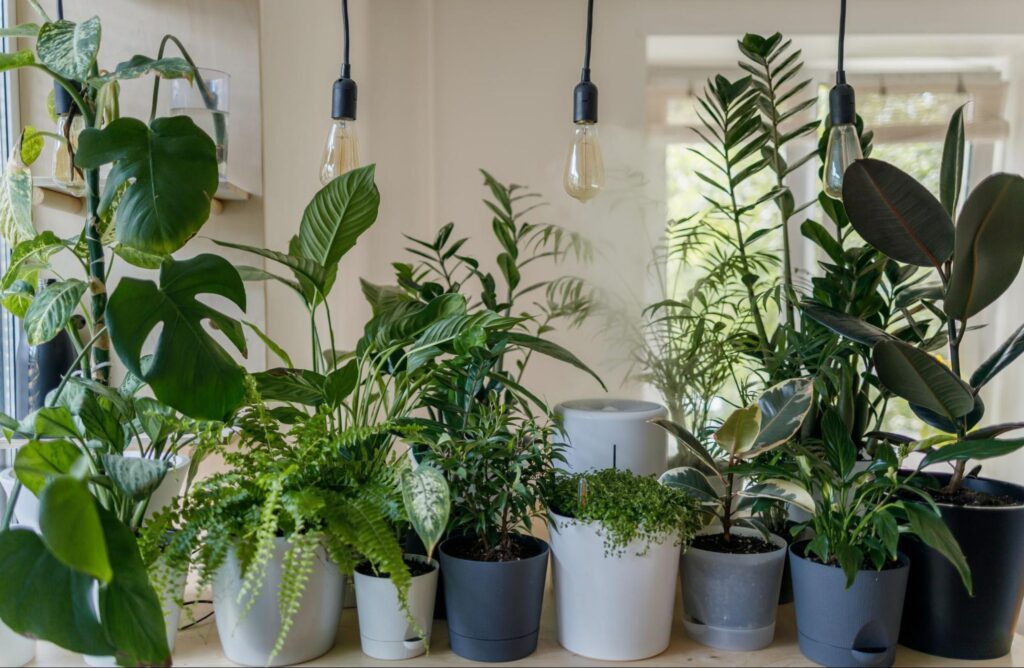
How Do You Get Rid of Bugs on Plants Naturally?
Houseplants are more prone to bugs because the indoor environment has the right conditions for their infestations. And during cold months, these pest infestations worsen because indoor plants are dormant and weak naturally. So, to get of these pests is imperative.
Following are the best natural pest controls for houseplants to manage infestations and recover the affected plants.
Neem Oil Spray to Control Insect Pests
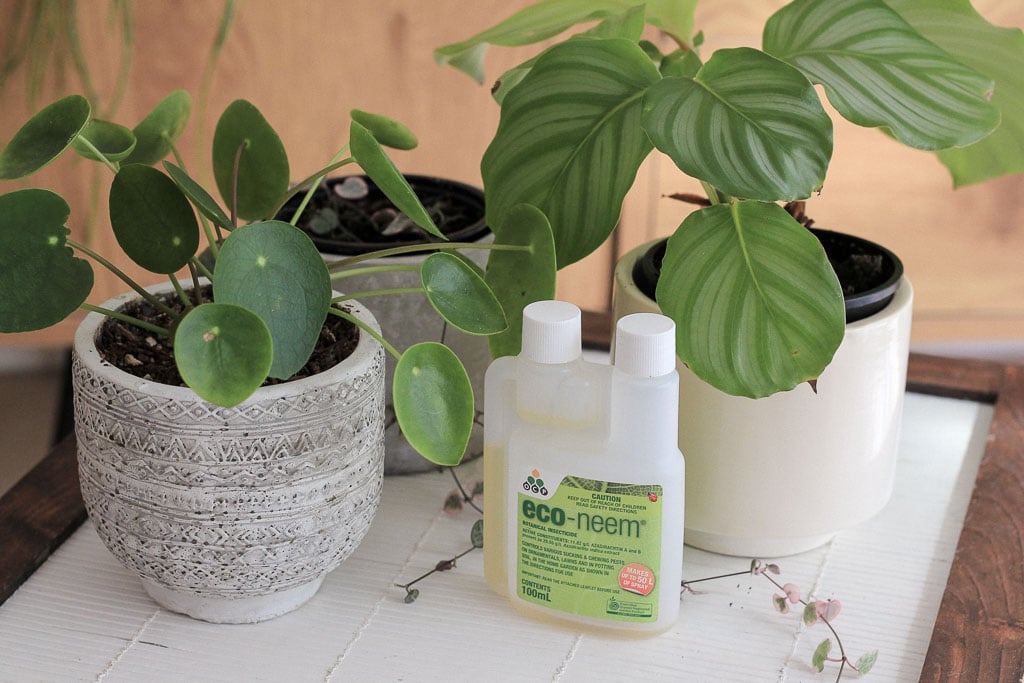
Neem oil is a natural pesticide product with broad action against almost all insect pests. It is light yellow to brown and can kill fungi, plant pests, and mites. In addition, the neem oil mix contains many compounds, such as azadirachtin, which kills pests by following actions.
- Neem oil spray smoothers the pests
- Repels the damaging plant insects
- It interferes with the insect hormonal system
- It works as an antifeedant
Neem oil sprays are equally beneficial for indoor and outdoor plants. This homemade bug spray application can manage heavy infestations of chewing and piercing-sucking plant pests. This natural chemical also prevents houseplants from root rot and secondary problems.
Neem oil is available in concentrated oil and is ready to use spray. Always follow the label details for each houseplant to get rid of pests. Also, apply neem oil in the morning or evening when the beneficial insects are dormant, and the temperature is not high.
The applications during midday when the temperature is high will burn the plants.
How to Prepare a Neem Oil Mix to Control Houseplant Pest?
The material and equipment we need are a spray bottle, neem oil, mild dish soap, water, and a bowl for mixing.
First, add one tablespoon of mild soap, water, and two tablespoons of neem oil to the bowl. Mix it well and add this mix in a spray bottle. Shake it well again and spray this homemade bug spray on the entire plant. Make sure to thoroughly apply the mixture on the underside of leaves and completely wet the plan to kill and wash off the pests.
Repeat the applications every 7-10 days for effective results.
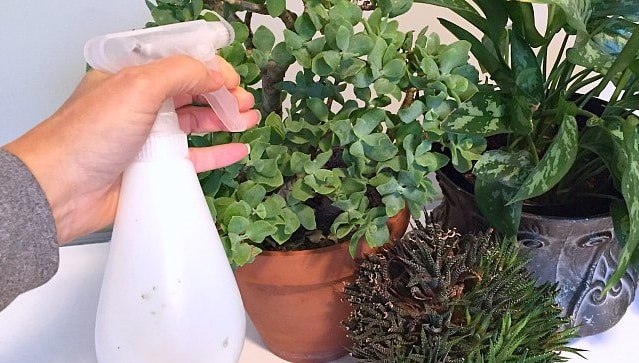
Neem oil spray is effective against these annoying bugs such as spider mites, mealybugs, aphids, whiteflies, thrips, fungus gnats, scale insects, russet mites, springtails, and winter moths.
Neem-based products also kill fungal diseases such as powdery mildew, blight, scab, rust, and black spot.
Unlike other chemical pesticides, neem-based products can successfully be applied throughout the growing season.
RELATED: How to Use Neem Oil as Organic Pest Control on Houseplants?
Use of Vegetable Oil to Kill Pests for Houseplants
Vegetable oil also effectively kills houseplant pests. The spray of oils suffocates the insects and stops their feeding process. These oils are best in managing mealybugs, scale insects, aphids, beetles, and thrips.
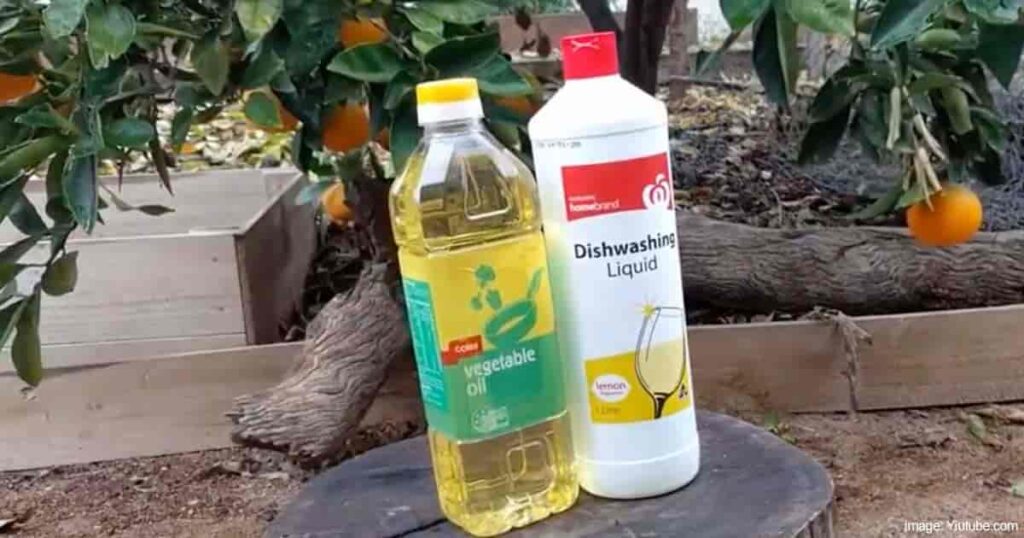
How to Prepare a Vegetable Oil Spray to Combat Pests?
To prepare a vegetable oil mix, we need the following material and equipment:
Spray bottle, vegetable oil (canola oil, olive oil, sunflower, coconut), dish soap or castile soap, and water.
Mix one tablespoon of mild dish soap with one cup of vegetable oil per gallon of water. Thoroughly shake this mixture to make it a homogeneous solution. Pour it in a spray bottle and apply to plants.
Always make sure to cover the whole insect body for effective results. Then, carefully apply this solution on the upper and underside foliage surfaces to kill the larvae, eggs, and adults of whiteflies, aphids, and scales.
Repeat the applications of vegetable oil spray after every four days and vigorously shake the spray bottle before application.
Use of Pepper Spray to Kill Bugs of Indoor Plants
Pepper spray is effective against mealybugs, whiteflies, aphids, and spider mites. This homemade bug spray manages the pest populations at an acceptable level.
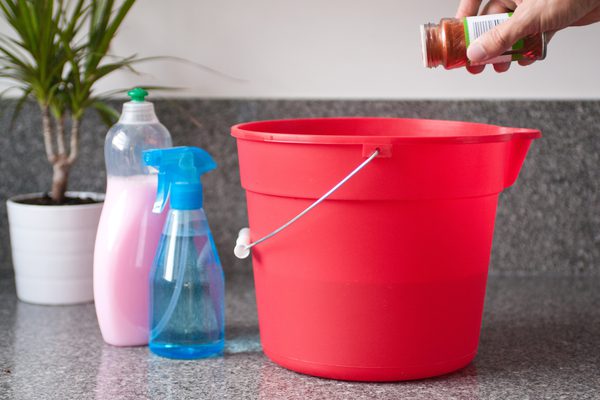
To prepare a hot chili spray, mix two tablespoons of red chili pepper with one gallon of water and one tablespoon of dish soap in a bowl. The addition of dish soap in the hot pepper mixture will help bind pepper in the solution.
Thoroughly mix the solution and pour it into a spray bottle. Apply the hot pepper spray on both sides of plant leaves to wash off the houseplant bugs. Reapply the mixture every four days to achieve the best results against houseplant pests.
Note: While spraying hot pepper spray on indoor plants, always wear gloves and eye protection to avoid irritation. And keep pets away from plants for almost two to three days.
Use of Garlic Spray to Kill Bugs on Indoor Plants
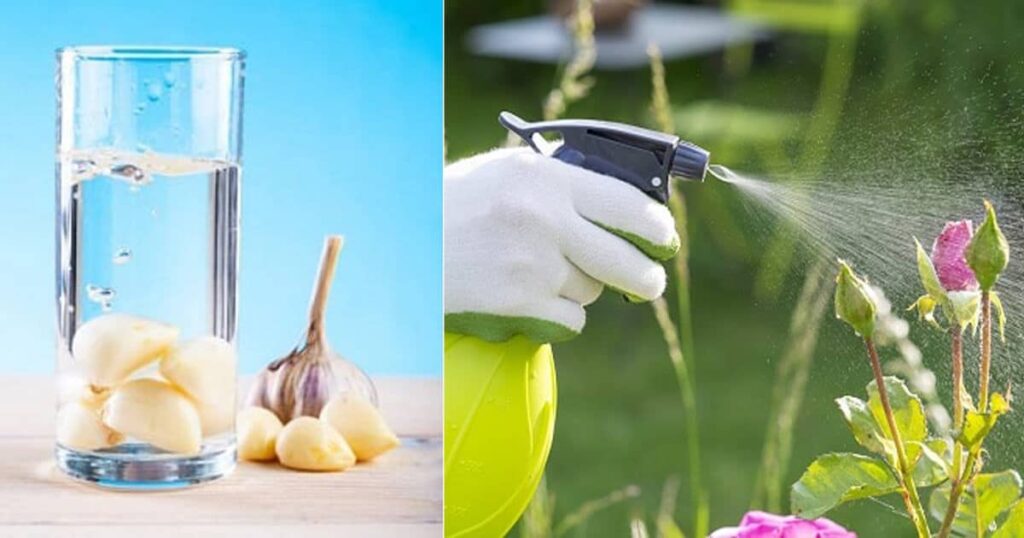
Garlic cloves effectively manage aphids, whiteflies, slugs, caterpillars, and ants. The garlic spray is the best option to control houseplant bugs rather than toxic pesticides.
To prepare a garlic spray, take six to seven cloves plus five cups of water in a food processor. Finely grind the cloves in water and then strain the mixture in a bowl. Add one tablespoon of dish soap to the mix and shake it well. Instead of soap, we can also add vegetable oil.
Before using this concentrated spray, add three to four cups of water to dilute it.
Pour the garlic mixture or homemade insecticides into the spray bottle. Apply the mix entirely on the plant covering the insect body. Reapply after seven days and in heavy bug infestations, spray indoor plants on alternate days.
Note: Always test spray before applying it to the plant. Also effective against garden pests.
RELATED: G Is For Garlic: Gorgeous Veggies That Start With ‘G’
Sticky Traps to Capture Houseplant Bugs
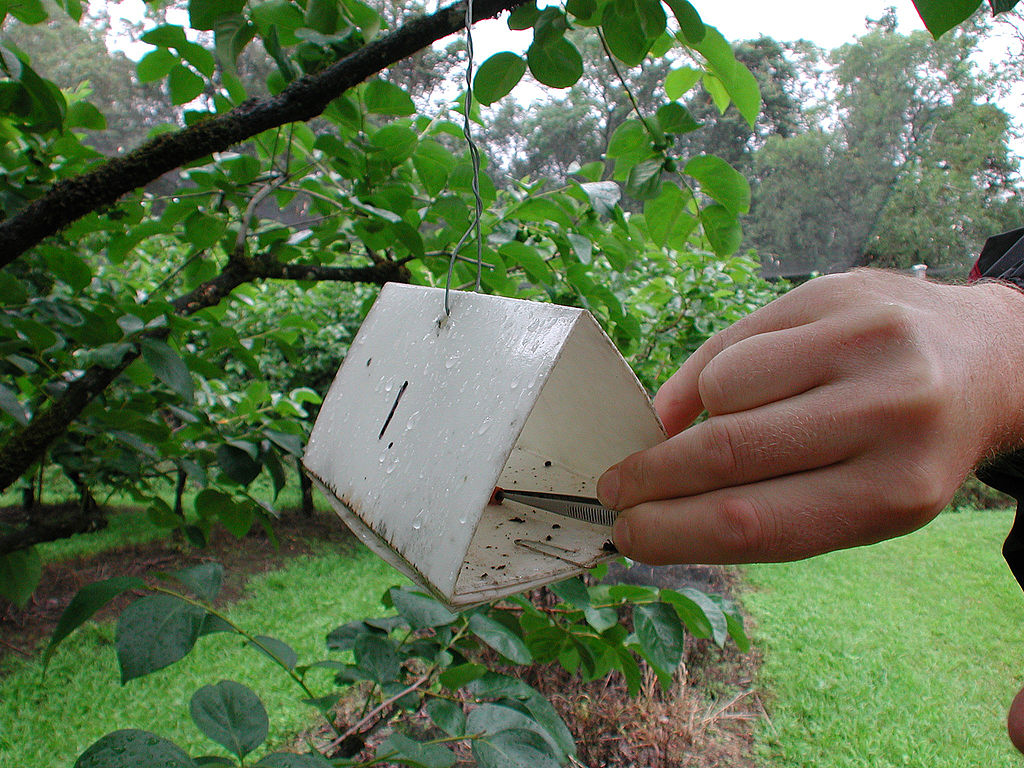
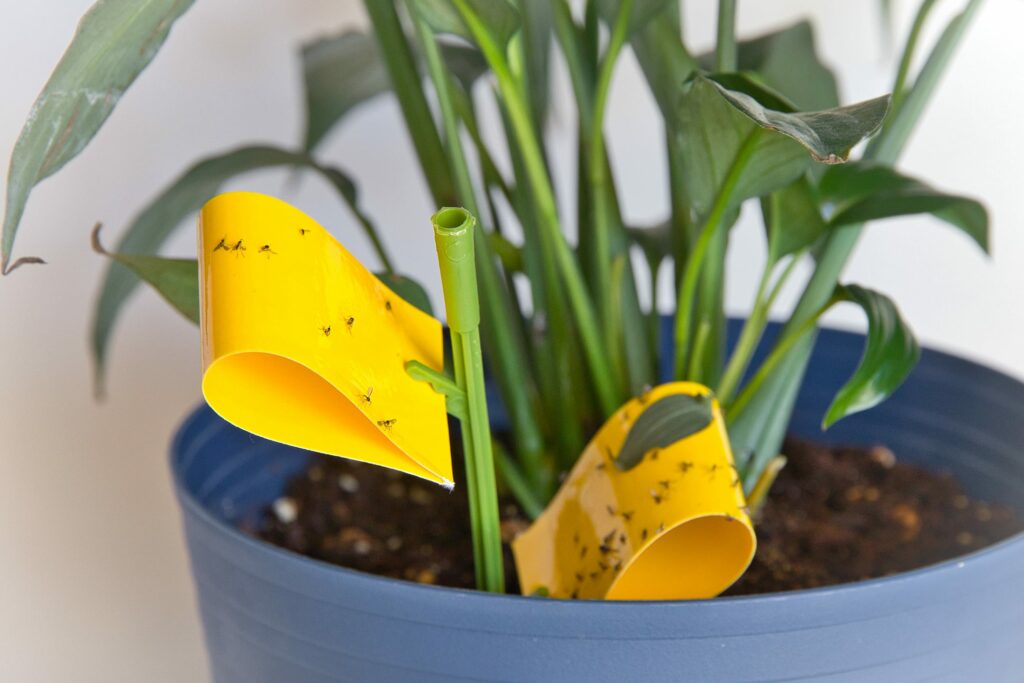
Yellow sticky traps are another best alternative for pest control rather than toxic chemicals. These sticky traps capture fungus gnat adults’ springtails and are most effective against flying insect pests.
It is also a cost-effective and non-toxic method to control houseplant bugs. In addition to that, these traps work best against a vast number of flying bugs in indoor and outdoor environments. The yellow sticky traps can easily be constructed through cardboard material coated with glue with bright colors (red, yellow, blue).
Beer Traps to Control Houseplant Bugs
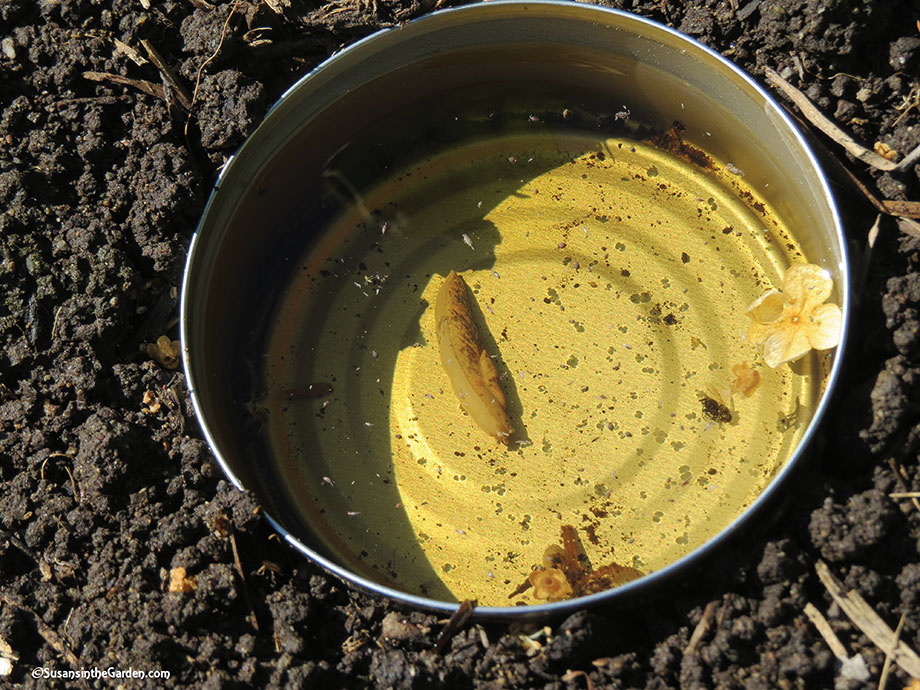
Beer traps are effective against slugs and snails. These vegetable garden pests are attracted to the beer smell, migrate to sip it, and fall into the bowl. Once the slugs and snails fall into the trap, they will not be able to crawl out.
The second-best control method involves the use of copper foil barriers. The copper barriers repel the slugs through copper and their slime combination. In this way, the slugs and snails will not enter and damage the garden vegetables and houseplants.
Note: While constructing a beer trap, make sure to use a deep enough bowl and discourage the crawling of slugs. Also, place the web in the evening and check each morning. Finally, before setting the trap, carefully check infested plants for damage.
Liquid Soap to Kill Bugs
The use of liquid soaps as homemade sprays effectively manages the houseplant bugs. It controls whiteflies, aphids, mealybugs, spider mites, and russet mites.
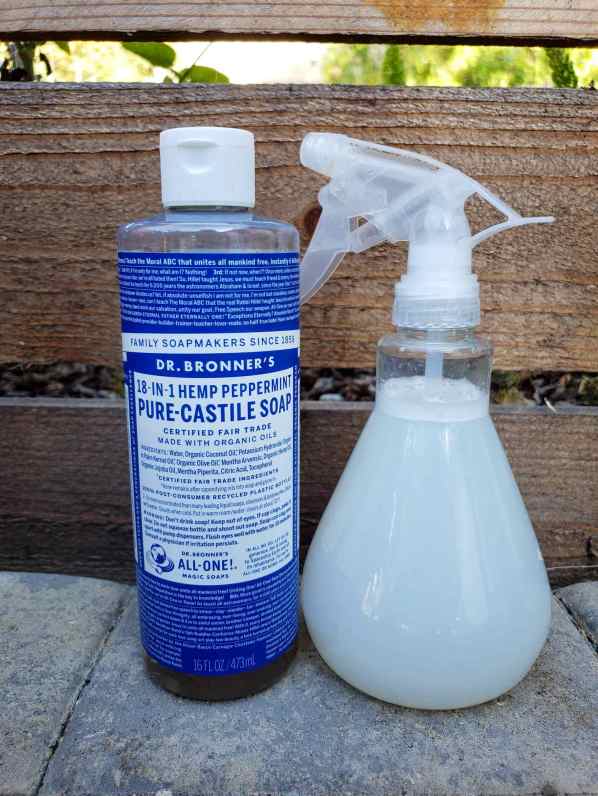
The liquid soap spray dissolves the outer coverings of the insect’s body and kills them. It is the best, non-toxic, and environment-friendly approach to deter bugs in indoor plants.
To make a liquid soap spray, mix one tablespoon of mild dish soap or castile soap per quart of water. Shake the ingredients vigorously and pour them into a spray bottle. Spray the mixture on the upper and bottom sides of the leaves and make sure the entire plant is wholly covered.
Do not over-apply the dish soap to plants because the applications will kill or burn the plants. It is wise to take the houseplants outdoor before liquid soap spray. After the application, the plant in direct sunlight vaporizes the extra liquid.
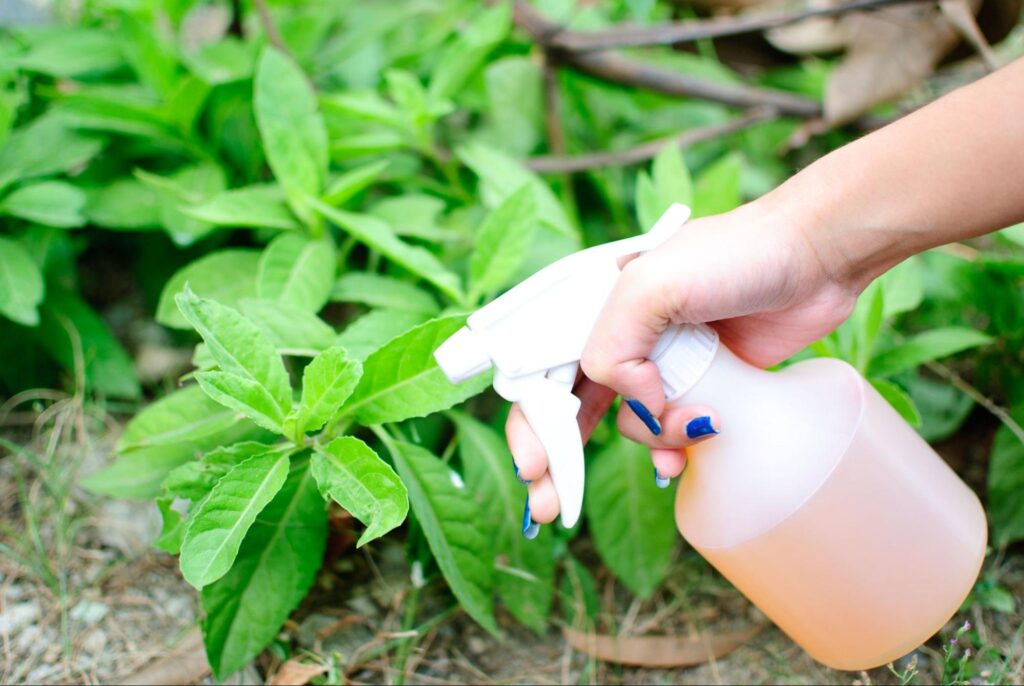
Do not spray the liquid soapy water the midday because the temperatures are high. Instead, always apply liquid soap when beneficial insects are dormant in the morning or evening.
Use of Alcohol Homemade Insecticides
A rubbing alcohol solution is an effective way to deal with heavy infestations of scale insects and mealybugs. The application of alcohol will disintegrate the insect body coverings and physiology. That is why rubbing alcohol serves the best goal to kill sucking pests of infested plants.
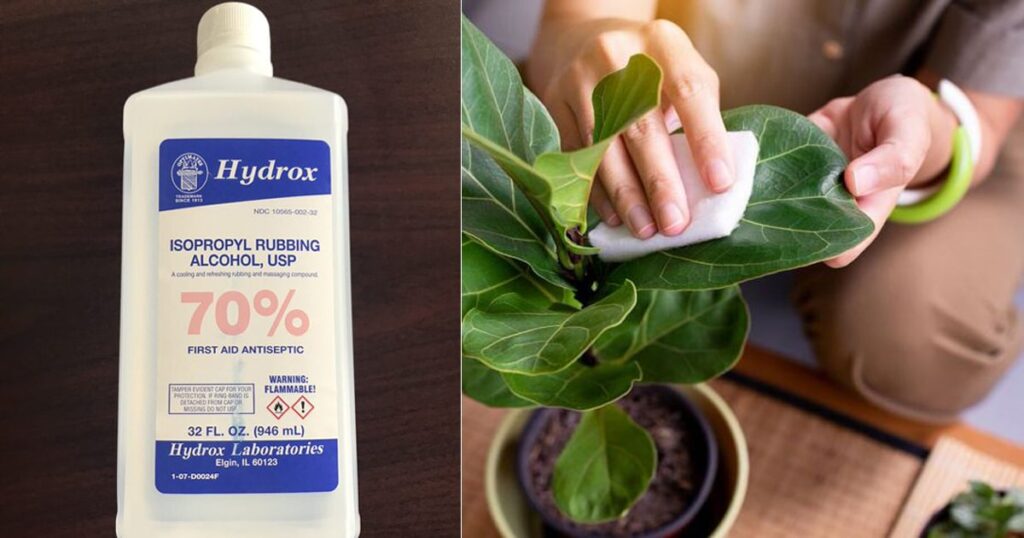
To prepare the alcohol rubbing spray, take one to two cups of 70 percent isopropyl rubbing alcohol and mix with one quart of water. Pour this solution into a spray bottle. Spray the rubbing alcohol solution on affected plants.
In case of heavy infestations, spray the alcohol solution every day. Once the problem is gone, reapply it every seven to fourteen days.
Use of Insecticidal Soap to Kill Houseplant Bugs
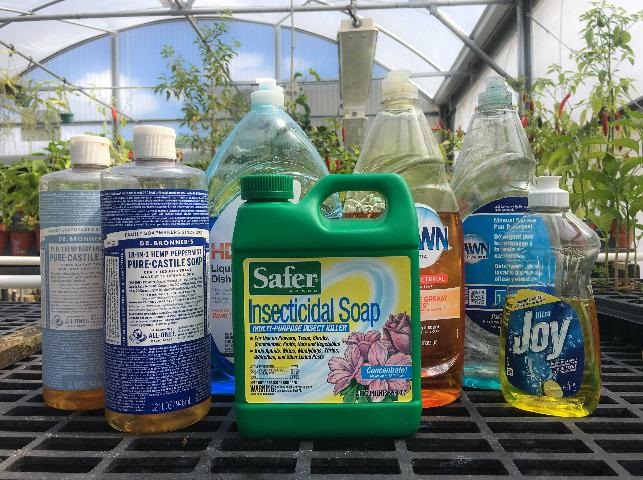
Insecticidal soap sprays are fast-action insecticides that kill houseplant bugs rapidly. These are effective squash bugs on heavily infested plants. However, the insecticidal soaps spray dissolves the insect body and interfere with their growth and development.
Mix one tablespoon of insecticidal soap with one quart of water and spray on affected plants for best results. Reapply the spray every seven to fourteen days to kill whiteflies, aphids, mites, and springtails.
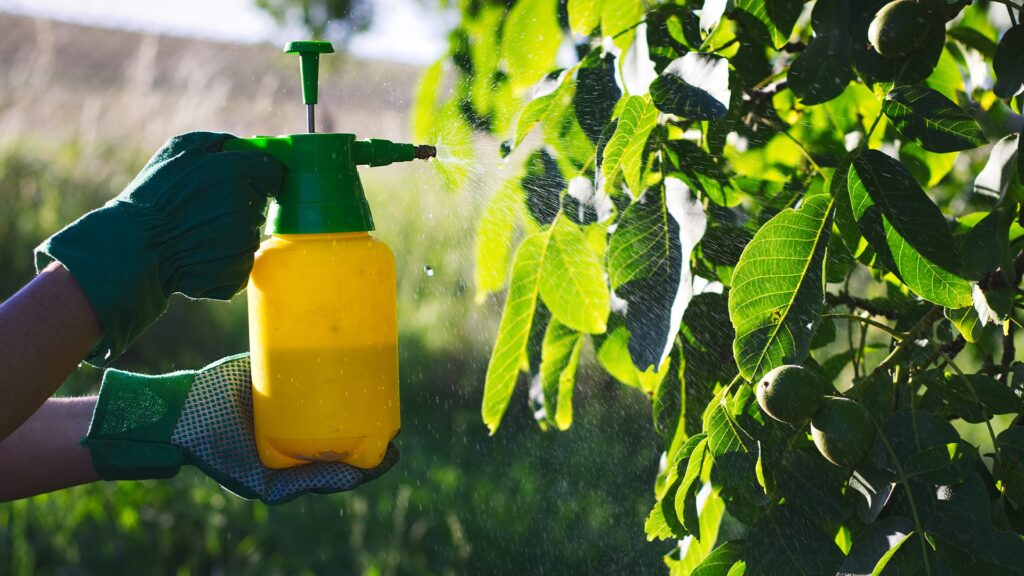
Natural Predators to Get Rid of Houseplant Bugs
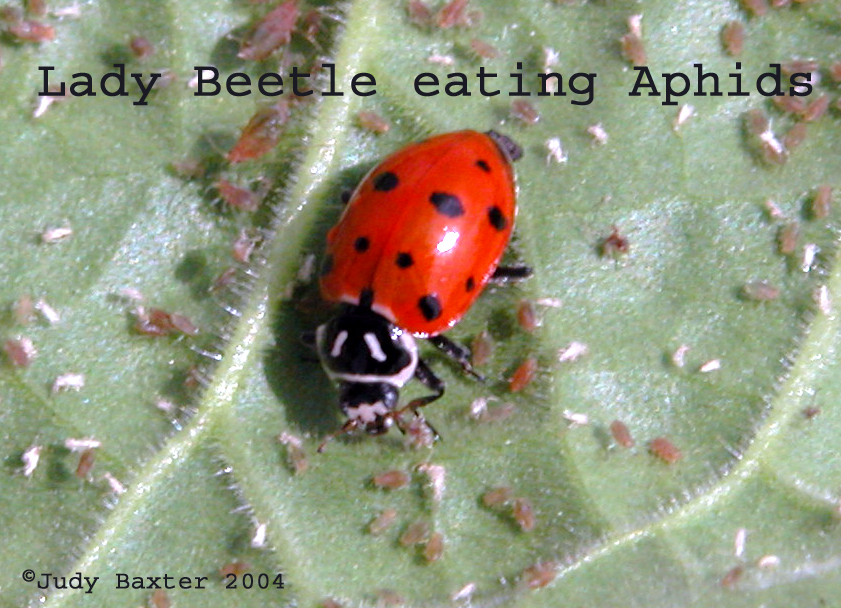
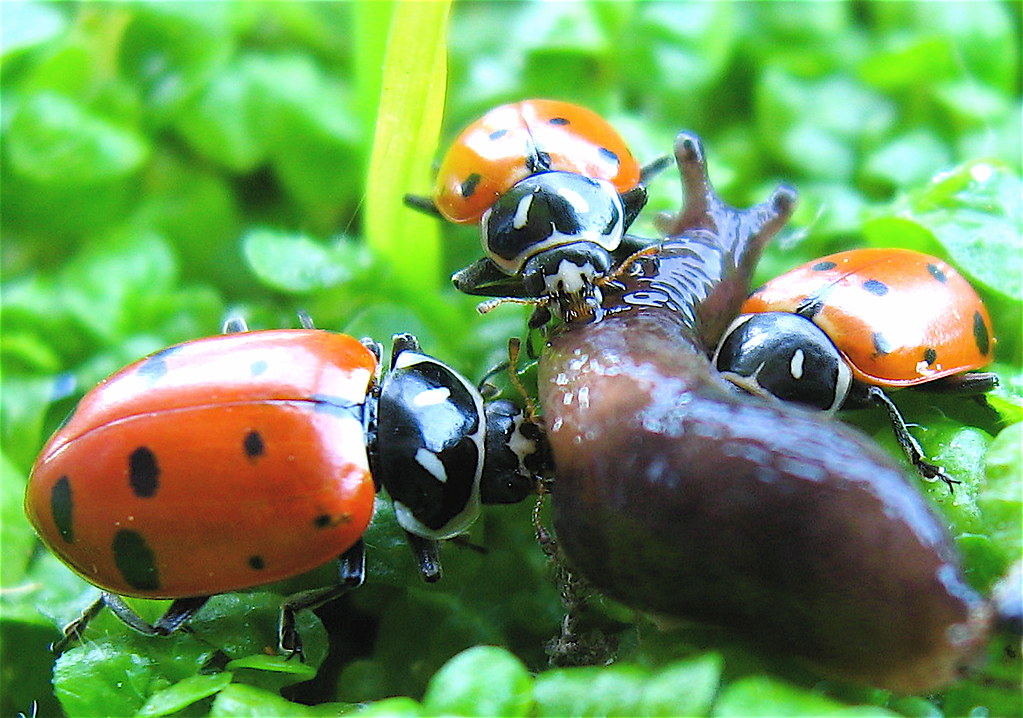
The natural predators of houseplant bugs are another environment-friendly solution to eliminate the infestations of these bugs. The beneficial insects such as green lacewings, ladybird beetle, and parasitic wasps eat the pests during all phases of their life.
The introduction of beneficial insects in interior spaces feeds off pests’ eggs, larvae, pupae, and adults and prevents future infestations.
Diatomaceous Earth to Kill Pests of Potting Soil
This powdery substance is effective against soil pests such as fungus gnats, slugs, snails, and black ants.
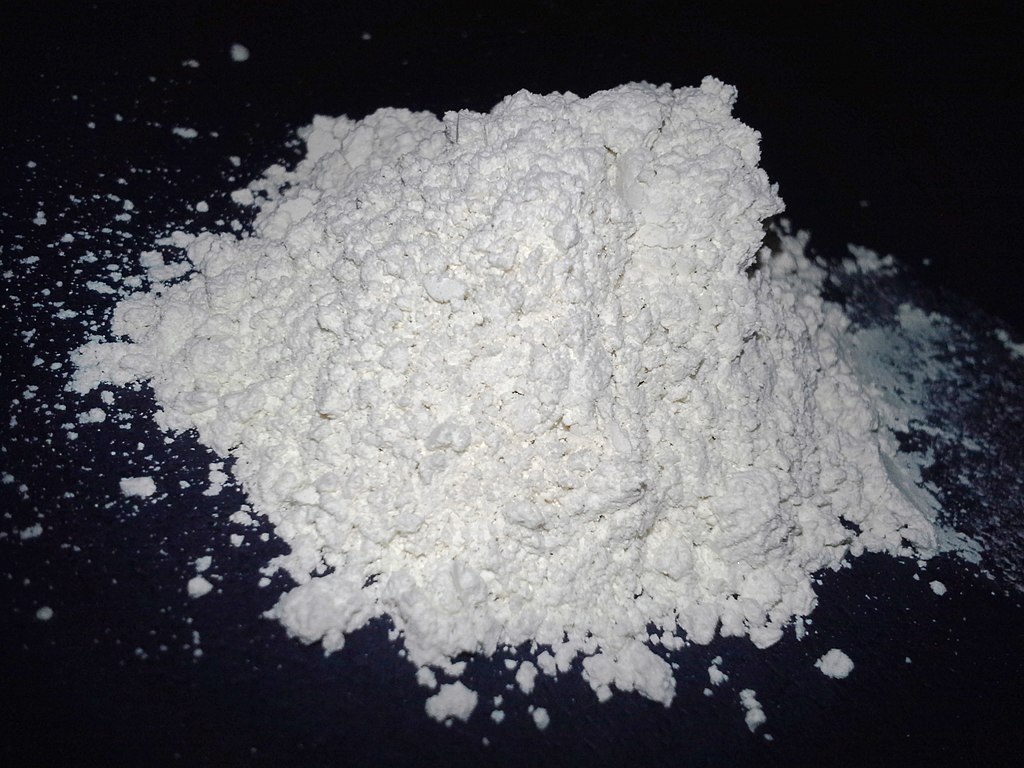
Diatomaceous earth is a fine powder or silica of fossilized marine animals. It is widely used to combat bugs in gardens and indoor plants. Apply the diatomaceous powder in potting soil and make sure there are no moisture contents in the ground at the time of application.
Always wear gloves while adding it to the soil. And carefully read the guide of manufacturers before application. To achieve healthy indoor plants, it can also be mixed with potting soil to kill pest eggs, larvae, and pupae.
Necessary Precautions While Using Natural or DIY Insecticides
The following precautions should always keep in mind while using or applying homemade bug sprays:
- Always wear eye protection, gloves, and masks when applying this natural and effective insecticide in interior spaces and gardens
- Apply these natural pesticides in the early morning or in the evening to prevent the burning of leaves
- Do not over apply these homemade bug sprays; otherwise, these will burn or kill the plants
- Always perform a patch test before applying on an entire or new plant
- Keep the pests away from plants for at least two to three days to avoid any allergic reactions
Frequently Asked Questions
Can I Spray Vinegar on Houseplants?
Yes, vinegar spray can kill houseplant pests, but its mild applications are also practical. To spray apple cider vinegar on plants, take one part of the vinegar with three parts of water and one tablespoon of dish soap. Mix it well and pour it into a spray bottle to kill common pests and other insects on plants.
Why Do My Plants Have Holes in the Leaves?
These houseplants have infestations of young caterpillars of winter moths and slugs. These two common pests of plants are voracious eaters of leaves. They make cut holes in leaves and disturb the food-making process of plants. Use beer and apple cider vinegar traps to eliminate these infestations once these slugs are in the beer trap. They will not be able to swim or crawl out and eventually die.
How Do You Get Rid of Aphids Organically?
There are numerous methods to get rid of aphids organically. It includes the use of natural enemies of aphids, soapy water spray, chili or cayenne pepper spray, use of essential oils, garlic and onion spray, insecticidal soap spray, and use of pyrethrins.
These natural control methods are best for indoor environments to control common and other pests. These are sprayed on infected leaves to control different bugs.
Sources For Further Reading
- Andrychowicz, A. (2020, July 20). Natural Pest Control For Houseplants. . . Say NO To Toxic Pesticides! Get Busy Gardening. Retrieved February 28, 2022, from https://getbusygardening.com/natural-pest-control-for-houseplants/
- Scott, J. M., & Williamson, J. (2021b, September 13). Common Houseplant Insects & Related Pests | Home & Garden Information Center. Home & Garden Information Center | Clemson University, South Carolina. Retrieved February 28, 2022, from https://hgic.clemson.edu/factsheet/common-houseplant-insects-related-pests/
- D. (2022, February 22). 7 Homemade Bug Sprays For Indoor Plants. Dian Farmer Learning To Grow Our Own Food. Retrieved February 28, 2022, from https://dianfarmer.com/7-homemade-bug-sprays-for-indoor-plants/
What is your favorite natural pest control for houseplants? Read more of our plant care tips:
How to Use Neem Oil as Organic Pest Control on Houseplants?
What is Silty Soil & How to Improve the Silt?
Importance of Soil pH and Nutrient Availability for Plant Health







